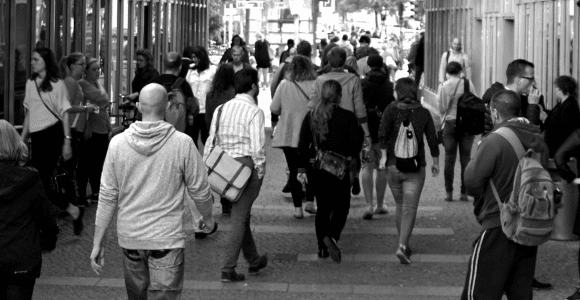
As we begin our discussion on our dependence on one another, our reading this upcoming weekend is from the gospel of Matthew.
“Anyone who welcomes you welcomes me, and anyone who welcomes me welcomes the one who sent me. Whoever welcomes a prophet as a prophet will receive a prophet’s reward, and whoever welcomes a righteous person as a righteous person will receive a righteous person’s reward. And if anyone gives even a cup of cold water to one of these little ones who is my disciple, truly I tell you, that person will certainly not lose their reward.” (Matthew 10:40-42)
Welcome Readers! Please subscribe to Social Jesus Here.
To get our heads around this week’s reading from the perspective of its original audience, we need to back up a bit. The subject here in Matthew 10 is Jesus’ instructions as he sends out early followers:
“Do not get any gold or silver or copper to take with you in your belts—no bag for the journey or extra shirt or sandals or a staff, for the worker is worth his keep. Whatever town or village you enter, search there for some worthy person and stay at their house until you leave. As you enter the home, give it your greeting. If the home is deserving, let your peace rest on it; if it is not, let your peace return to you. If anyone will not welcome you or listen to your words, leave that home or town and shake the dust off your feet.” (Matthew 10:9-14)
In the synoptic gospels (Mark, Matthew, and Luke), each version of these instructions differs slightly (cf. Mark 6:8-9, Luke 9:3; 10:4). But each version agrees that Jesus wasn’t sending out his followers to be independent, self-sufficient workers for Jesus’ vision of the new world. They were sent out to be wholly dependent on the hospitality, generosity, and resource-sharing of those to whom they were begin sent. This is important for our work today.
Let’s try to understand the context around what’s happening in these passages. In his excellent book The Lost Way: How Two Forgotten Gospels Are Rewriting the Story of Christian Origins, Jesus scholar Stephen Patterson explains:
“It begins with a knock at the door. On the stoop stand two itinerant beggars, with no purse, no knapsack, no shoes, no staff. They are so ill-equipped that they must cast their fate before the feet of a would-be host. This is a point often made by historical Jesus scholar John Dominic Crossan. These Q folk are sort of like ancient Cynics, but their goal is not the Cynic goal of self-sufficiency; these itinerants are set only for dependency. To survive they must reach out to other human beings. They offer them peace—this is how the empire arrives. And if their peace is accepted, they eat and drink—this is how the empire of God is consummated, in table fellowship. Then another tradition is tacked on, beginning with the words ‘Whenever you enter a town.’ This is perhaps the older part of the tradition, for this, and only this, also has a parallel in the Gospel of Thomas (14). There is also an echo of it in Paul’s letter known as 1 Corinthians (10: 27). Here, as in the first tradition, the itinerants are instructed, ‘Eat what is set before you.’ Again, the first move is to ask. The empire comes when someone receives food from another. But then something is offered in return: care for the sick. The empire of God here involves an exchange: food for care.” (pp. 74-75)
This stands in deep contrast with economic and political soundbites today. I’ll explain what I mean by this, next.
(Read Part 2)














